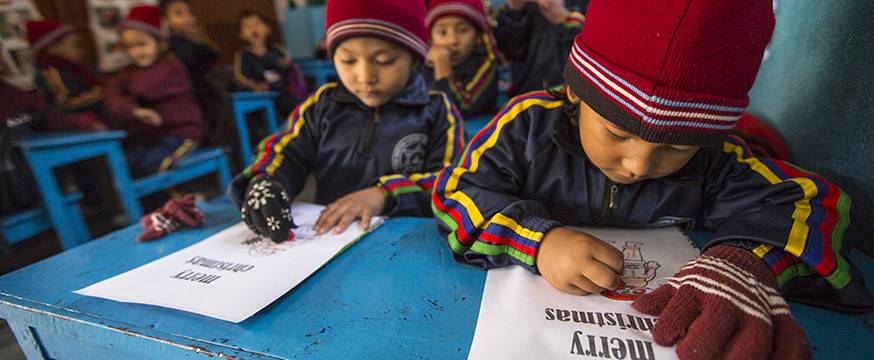
Assessments to support quality teaching and learning
Research 11 Feb 2015 5 minute readThe focus of post-2015 development goals on educational quality for all is directing attention to assessments that support quality teaching and learning, as Charlotte Waters explains.
Assessments to support quality teaching and learning
Until recently, the focus of governments of developing countries and the donor partners working with them has been on ensuring access to schooling, particularly at the primary level. The international community debate about post-2015 development goals indicates there is general agreement that ensuring access is a necessary but not a sufficient condition for improving educational outcomes. If children are to benefit from education then attending school must involve learning.
Learning assessments enable the measurement of learning levels. But what kinds of learning assessment activities are suitable for different contexts and purposes? What do assessment results really reveal about an education system? How can assessment systems be strengthened so they can effectively inform the decision making that leads to changes in policy and practice? And, fundamentally, how can the quality of assessments and data be judged?
In the crowded and busy learning assessment space, governments, donor partners, and other interested stakeholders are asking questions like these. The Australian Council for Educational Research (ACER) is helping to answer them through several strands of review work.
Reviews of major learning assessments
In the first work strand, ACER’s Centre for Global Education Monitoring is investigating major learning assessments like the Programme for International Student Assessment (PISA), the Trends in International Mathematics and Science Study, the Early Grade Mathematics Assessment and Early Grade Reading Assessment, assessments of the Laboratorio Latinoamericano de Evaluación de la Calidad de la Educación and Programme d’Analyse des Systèmes Educatifs de la CONFEMEN, and assessments of the Southern and Eastern Africa Consortium for Monitoring Educational Quality.
The Centre for Global Education Monitoring is documenting their key features and offering this documentation in a consistent format on its website. Visitors to this location can get a quick overview of the similarities of and differences between the reviewed assessments, download analyses that describe the assessments in more detail, and find out where to learn more.
Reviews of foundational reading and mathematics assessments
In the second work strand, ACER has been collaborating with the Results for Development Institute on a review of four citizen-led, household-based assessments of foundational reading and mathematics, funded by the William and Flora Hewlett Foundation – ASER in India, Bɛɛkunko in Mali, Jàngandoo in Senegal and Uwezo in Kenya, Tanzania and Uganda. ACER’s role in this strand has been to evaluate the testing tools and processes of these four assessments and recommend ways to improve the reliability, validity and utility of results. The four organisations responsible for these assessments will be assisted by ACER as they implement the recommendations.
Further activities in this work strand will include ACER field studies in Kenya to examine the concurrent validity and inter-rater reliability of Uwezo. ACER also stands ready to support new members as they join the ‘family’ of citizen-led, household-based assessments.
Comparative reviews of learning assessments
In the third work strand, ACER has been contracted by the World Bank to undertake a comparative review of the component skills that are tested and the contextual data that are collected in learning assessments, the instruments and practices of which might inform the design and implementation of the PISA for Development initiative. PISA for Development intends to make PISA more relevant for the contexts found in developing countries.
Life-long learning opportunities for all
The fourth goal in the 17 proposed goals of the United Nations Open Working Group on Sustainable Development Goals, relating to education, aims to ‘Ensure inclusive and equitable quality education and promote life-long learning opportunities for all.’ That goal sees education taking a foundational place in the global development agenda.
In that global development agenda, learning assessments are vital tools for measuring the quality and equity of education systems. They will undoubtedly form a central part of the framework that supports countries in their efforts to attain this goal. But in order to be truly useful tools, they must be sustainable and build local capacity. They must also be appropriate for the contexts in which they are used, and embedded in the cycle of policy development and evaluation.
ACER’s review work supports the focus on access to educational quality for all by helping to improve existing learning assessments, by informing thinking about nascent learning assessments, and by contributing to global awareness of and knowledge about these activities, all in pursuit of the ultimate goal: to support quality teaching and learning.
Research Conference On Demand
Charlotte Waters was a presenter at our fully online Research Conference 2021. Watch recordings of all events in the main program through our Research Conference On Demand package, available for a limited time. Find out more.
